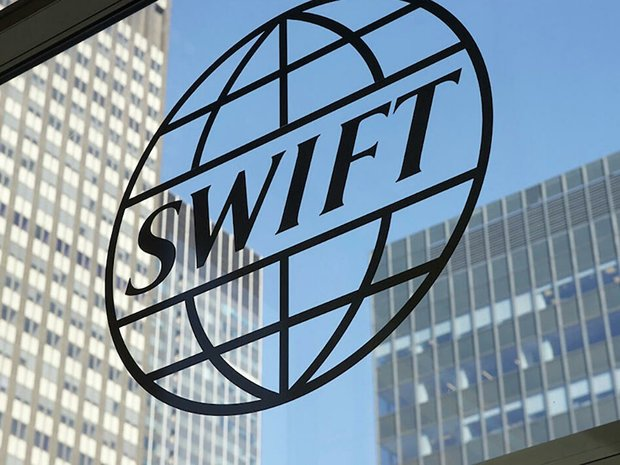Aggravated relations between the USA and Russia regarding Ukraine elevated risks of excluding our country from the SWIFT system used by banks around the world. Realnoe Vremya’s columnist, economist with long-term banking experience Artur Safiulin thinks that the possible disconnection will have huge consequences for the economy and businesses of Russia and is, perhaps, the strictest sanction one can come up with.
What is SWIFT and how does it work?
The Society for Worldwide Interbank Financial Telecommunications was created in 1978. 248 banks from 19 countries became its co-founders. SWIFT is headquartered in Belgium. It is a corporate society created accordingly to Belgian legislation and belongs to its members. The members total over 12,000 financial organisations of more than 200 countries of the world. The average turnover is equal to over 30 million messages a day.
What does SWIFT do? It is an international interbank system that communicates information and payments. The system allows financial institutions to send and receive information about financial transactions in a safe and standardised way.
SWIFT can be considered as a kind of messenger where financiers of the world exchange transactions, confirmations of deals and other financial documentation. SWIFT is not a payment system being the main and only universal channel communicating arrangements of money and other valuables between members of the society. The number of messages reaches 10,6 billion a year. Many countries, including Russia, have their own systems of internal communication between banks but prefer using SWIFT, since it is more convenient. Also, all payments in a foreign currency are anyway sent through this system. It is a tested and reliable channel of communications all banks are connected to.

To seal a deal or do a transaction, a financial institution creates a message with the necessary information. It is sent to a confidential SWIFT network via a terminal. The message consists of the headline, the main text and a trailer. The terminal is connected with the computer to send and receive such messages. After that, this information goes to the operation centre, which receives a unique code, it is processed and goes to a SWIFT member. This happens when messages are approved. Otherwise, a transfer won’t be possible. Information for SWIFT needs to be filled in in English.
In Russia, SWIFT operates the following way: the currencies that can be transferred through the system depend on the bank. The sender pays the fee for a transaction in Russia. The amount of the fee changes: 1-1,5% for service in dollars depending on the financial institution. A transfer takes as much as up to a week like in other countries, the shortest time is a day. SWIFT members are divided into two zones: European and Transatlantic. Transatlantic financial institutions are serviced in the USA. The European message exchange zone is provided services in the Netherlands. Such a division allows not mixing communication channels. If a bank is located on a territory out of these zones, it decides in which zone to receive the service itself.

Consequences of disconnection for Russia
In fact, the threat of exclusion is not new: the European Parliament adopted a resolution to disconnect Russia from SWIFT in case of invasion in Ukraine as early as 29 April 2021. What this means for Russia’s economy:
- The impossibility of making international payments, it will be very tough to do this. Our export-oriented companies immediately come to our mind, it will be a shock for them. We depend on SWIFT because of hydrocarbon exports that are worth billions of US dollars. The disconnection will lead to a serious slowdown in international payments, which will cause a disruption of supply chains, a rise in prices for imports and a temporary deficit of some commodities. Small and mid-sized companies will face slower payments and settlements with suppliers and purchasers. Since all three SWIFT data centres are outside Russia (the Netherlands, Switzerland, the USA), all messages of Russian banks go there, even if the payment is made to another Russian bank. This can be substituted by a letter of fax and go to the Stone Age of banking service. The appreciation and sudden slowdown of financial flows in the era of global commerce and international technological and sale chains will land a serious blow on businesses. For banks, fewer transactions and the necessity of looking for alternatives will lead to a decrease in incomes and an increase in expenses.
- The reputation will be hurt. We will join a club with Iran and North Korea. Many foreign banks and companies will refuse to work in the country automatically.
- The currency shock means the disconnection will knock the ruble down. The Russian Central Bank will have to either raise the key rate several times or spend foreign currency reserves by saving the ruble. The devaluation will lead to the growth in import prices and inflation as a consequence. Here a parallel with Iran should be drawn, it was disconnected from SWIFT in 2012. Since then, the local currency has depreciated 3,4 times. GDP fell threefold because of the loss of half of budget income from hydrocarbon exports and loss of 30% of foreign commerce. If this scenario is used for Russia, by late 2023, the dollar will cost 150 rubles.
- Investors’ sale of Russian stocks. This will bring us to a serious collapse in the Russian stock market and banks’ losses, which are large holders of corporate and public stocks, and private investors.

What should Russia do to minimise the damage?
Of course, the disconnection doesn’t cancel other communication channels. Once SWIFT replaced the phone, pneumatic tube system and telex. Since then, the world has progressed in telecommunications — from tax and email to blockchain.
It is noteworthy that the disconnection will be unnoticeable for internal settlement between natural persons — the system of quick payments runs very well. The share of messages through the system of financial message communication of the Russian Central Bank grows and already reaches 20% of domestic Russian traffic. The total number of system members is already over 400 besides banks from Armenia, Belarus, Kazakhstan and Kyrgyzstan, it already has banks from Germany and Switzerland.
Mir payment system can provide the uninterrupted service of cards inside the country if there are problems with Visa and Mastercard. The share of internal transactions with its participation rose to 24$, while the total value did to 24,8%. However, not all Russian banks are in the system.
There are two scenarios in case of disconnection from SWIFT:
- The switch of banks to bilateral payments. Banks in Russia and abroad can have bilateral relations and establish an online system of transactions with correspondent accounts. The revival of such archaic ways as Telex is possible.
- The circumvention of the ban with the help of the Russian analogue, which is the use of the Financial Messaging System of the Russian Bank. Russian traffic can easily transferred to this system. But the issue of international payments remains open. Nobody yet knows what to do with this problem — SWIFT doesn’t have analogues to exchange data in international payments.
In conclusion, I would like to note that there have already been made certain steps to increase the independence from SWIFT. But they are not enough to minimise the potential damage for the country’s economy. Transaction issues can be resolved technically. While the problems because of the loss of trade, hydrocarbon supplies and the collapse in the stock market, which will lead to a fall in the country’s GDP, cannot be solved quickly. We can just hope that there will anyway be no disconnection.
Artur Safiulin
Reference
The author’s opinion does not necessarily coincide with the position of Realnoe Vremya’s editorial board.



